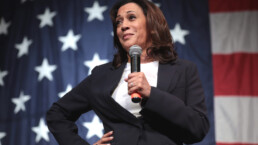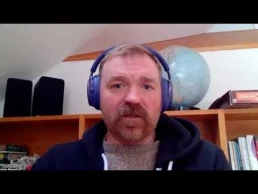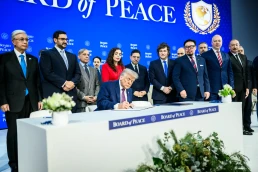As Harris locks in her presidential nomination, here’s her record on monopolies and financial power.
By Matt Stoller, The Lever
In 2010, Kamala Harris went to Google headquarters and gave an hourlong interview with David Drummond, the then-chief legal officer who had overseen the YouTube, Android, and DoubleClick acquisitions. Drummond resigned 10 years later in disgrace over a sex scandal, but back then, he was the legal eagle moving Google through its first existential political crisis. The company was being investigated for monopolization, a suit it avoided through connections with Obama and the GOP establishment.

Harris, meanwhile, was running for California attorney general, a race she narrowly won, with the support of progressives. So her stop at Google had a different valence than it would today, as it was a campaign stop for an in-state race. Still, she was asked about antitrust, and today she has a very good chance to be president, so her answer is worth considering.
Drummond prefaced his question with the statement that Google was not a monopoly and was constantly being challenged by entrepreneurs in garages. Then he asked, “How do you think about enforcing antitrust?” Harris’ response was noncommittal. Harris said that it’s important to let businesses “develop and grow” because tech is a “very significant source of California’s economy.” That said, enforcement against bad actors wasn’t necessarily anti-business. “Bad businesses are not good for good businesses,” she added.
Harris didn’t articulate particularly coherent views on antitrust, which is consistent with the broader Democratic Party consensus at the time. Despite Google being in the crosshairs of the Obama-era Federal Trade Commission, antitrust just wasn’t widely considered important. The people in the audience asking her questions, all Google employees, certainly didn’t have strong views on the problem. Plus, at this public event, Harris wanted to connect to these people not as Google employees, but as California voters. Her message was, “I like you, give me money and votes.” And she achieved her goal.
Recent Posts
Can He Deliver? A Zero Hour Conversation With Graham Platner
February 6, 2026
Take Action Now Can a military vet turned oyster farmer pull off an upset—and deliver?By Rj Eskow and Graham Platner, The Zero Hour I’m joined in…
Trump’s Board of Peace Is a Dystopia in Motion
February 5, 2026
Take Action Now As it stands, the BoP charter elevates Trump to a position akin to a global dictator for life, unchecked—on paper— by any external…
The Actual Gavin Newsom Is Much Worse Than You Think
February 5, 2026
Take Action Now Newsom has drawn widespread praise for waging an aggressive war of words against President Trump. But few people outside of…
Judge Blocks Noem Effort to Bar Surprise ICE Jail Inspections as Detention Deaths Mount
February 4, 2026
Take Action Now A federal judge halted the DHS secretary’s renewed effort to block surprise inspections as deaths, overcrowding, and abuse…




